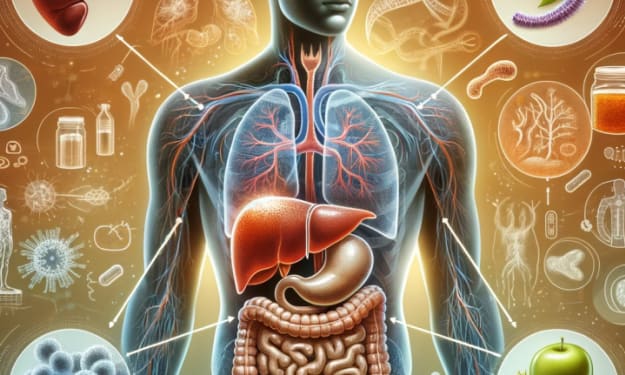How to Improve Brain Health
We all want our minds to be sharp, clear, and free of disease, but how?

Let’s talk about the BRAIN.
We all want our minds to be sharp, clear, and free of disease, but how?
Let’s break it down into groups.
- Environmental Toxins
- Gut Health
- Exercise
- Sleep
- Stress
- Diet
These all contribute to brain health, but to pay each one its due respect would turn this post into a book. So let’s start at the top to get you thinking about a brain cleanse (which is not the same as a body cleanse).
Leading scientists (Landrigan & Grandjean) have recently identified a dozen environmental chemicals and everyday items like furniture and clothing responsible for widespread behavioural and cognitive difficulties.
Children are the most susceptible to neurotoxic exposure in the womb and at home. It affects IQ, ADHD, autistic tendencies, and other behavioural irregularities that are all too common in our modern world. Then add constant exposure to electromagnetic radiation from mobile phones, cellular data networks, wifi, microwaves, and radio waves, and an ugly picture emerges.
The full scope of the problem and its causes is probably much broader than we suspect, but let’s work with what we’ve got.
There are 45 organophosphate-based pesticides on the market, and most have the potential to damage developed and developing nervous systems. These chemicals are poisonous.
Chlorpyrifos is just one of 12 toxic chemicals. Landrigan and Grandjean say they have grim implications for fetal brain development. Their study is similar to a review the duo published in 2006 in the same journal, identifying 6 developmental toxins. The number of chemicals matching the “developmental toxins” criteria has doubled in the last 7 years.
The most common chemicals and the places where they appear
Manganese: added to soda cans to stop metal from rusting.
Fluoride: toothpaste.
Chlorpyrifos: pesticide currently used on food and non-food crops.
DDT/DDE: on apples.
Tetrachloroethylene (PERC): dry cleaned clothes.
Polybrominated Diphenyl Ethers (PBDEs): flame retardant used on furniture upholstery and some children’s clothing.
Arsenic: used in pesticide production and occurs naturally in soil. This is present in higher amounts in some foods like rice.
Lead paint: may be found on home exteriors and children’s toys built between 1960 and 1990.
Mercury: found in fish, primarily farm-raised, and most prevalent in tuna.
Toluene: found in gasoline and used to make plastic bottles and adhesives
Polychlorinated Biphenyls (PCBs): fire retardant used in insulation, carbon-copy paper, and car engine coolant
Grandjean and Landrigan note in their research that diagnosis rates of autism spectrum disorder and ADHD are increasing and that neurobehavioral development disorders currently affect 10 to 15 percent of births. The greater concern lies in what we’re exposed to and don’t yet know to be toxic. Children are more sensitive and vulnerable to chemicals than adults.
Evidence is strong that people can prevent or reduce their risk of cognitive decline by making fundamental lifestyle changes, including participation in regular physical activity, staying socially engaged, and maintaining good heart health. Combined with a focus in clinical care on brain health and early detection, this can yield significant results. Rapidly advancing science now points to the ability to reduce dementia risk and enhance cognitive function and health as we age.
What Is a Brain Detox/Brain Cleanse?
A brain detox (or cleanse) is intended to help protect against neurodegenerative diseases and decrease symptoms related to poor brain function.
I usually instruct my patient to try a brain cleanse to help manage symptoms like:
- Fatigue
- Brain fog
- Anxiety
- Depression
- Memory loss
- Brain injury and stroke
- Addiction
This cleanse usually involves:
- Prioritizing sleep.
- Taking certain supplements that may help support brain function.
- Eating an anti-inflammatory diet.
- Exercising and fasting if appropriate.
- Support your brain health with these detox strategies:
1. Detox Your Home
Every day, knowingly or unknowingly, we’re exposed to a cast of chemicals and fumes that poison our brains. They come from household cleaning supplies, personal care products, and gasoline fumes. Common toxins absorb into our bodies through our lungs in the presence of fumes and on our skin when we apply products like lotions and creams. Once in the bloodstream, these harmful compounds circulate to our brains. The greater your exposure to these everyday toxins, the higher the risk of brain damage leading to cognitive and mental health issues.
How to Brain Detox: Swap household cleaners and personal care products filled with harmful chemicals for chemical-free, scent-free options whenever possible. And yes, you can often replace bleach with a mix of white vinegar, lemon juice, and water in a spray bottle.
2. Detox Your Refrigerator
The Standard American Diet (SAD) fills consumers with inflammatory, allergenic foods packed with preservatives, stabilizers, flavour enhancers, and more. This food has been engineered to trigger dopamine receptors, not nourish our bodies. Most additives will damage and prematurely age your brain, increasing your risk for depression, ADD/ADHD, anxiety disorders, and dementia.
3. Detox Your Bad Habits
Alcohol, marijuana, and other drugs (including legal ones like nicotine and social media) are addictive and pollute the brain, ruining the delicate balance of neurotransmitters. Some negative consequences of addiction include decreased brain volume, reduced blood flow, reduced generation of new brain cells, atrophy of the hippocampus (involved in memory and learning), and increased risk of dementia.
4. Minimize Toxin Exposure
While avoiding all chemicals and toxins may not be realistic, try to reduce exposure as much as possible by avoiding cigarettes, drugs, and unnecessary medications.
Choosing organic beauty products, household supplies, and organic food reduces exposure to contaminants. This limits the number of pesticides, herbicides and other chemicals you ingest.
If you suspect exposure to heavy metals (as is possible from eating farmed fish, contaminated water, dental fillings, and specific work environments), consider visiting us for testing and potential chelation therapy.
5. Consider Supplements for Brain Health
You can help support your body’s natural ability to detox by taking adaptogenic herbs and supplements that nourish the liver, kidneys, gut and brain. Some of the supplements I frequently suggest to my patients include:
- Milk thistle for liver support
- Medicinal mushrooms for general immune support
- L-glutamine for gastrointestinal support
- Vitamin C for antioxidant support
- Green tea extract for a boost in energy and antioxidant effects
- Probiotics for gut support and maintaining a healthy microbiome
But please do NOT start buying a battery of supplements on your own. Skipping the consultation and self-prescribing supplements only increases the possibility of wasting your time and money. There’s more nuance to what I give my patients and why than “if this, then that.” Not everything helps everyone – beyond the basics of diet and exercise, health is a highly personal endeavour.
Conclusion
A brain detox (or cleanse) can help protect against neurodegenerative diseases and mitigate symptoms like fatigue, moodiness, and lack of concentration/focus.
A brain detox can help support the glymphatic system: the network of blood vessels that remove waste products from the brain and central nervous system. Getting enough sleep each night is one of the best ways to support your brain’s natural detoxification process.
Other interventions include eating an anti-inflammatory diet, exercising, fasting, sauna therapy, and appropriate supplementation.
---
This content is for educational purposes only and should not be taken as medical advice. Even though we are doctors, we are not your doctors. Talk to your doctor first if you have serious concerns.
About the Creator
Dr. Elena Krasnov
I help people feel their best everyday by infusing the scientific advances of Western medicine with Naturopathic practices and contemporary philosophies of wellbeing.
We'll work together to unblock the path to true and lasting wellness.






Comments
There are no comments for this story
Be the first to respond and start the conversation.